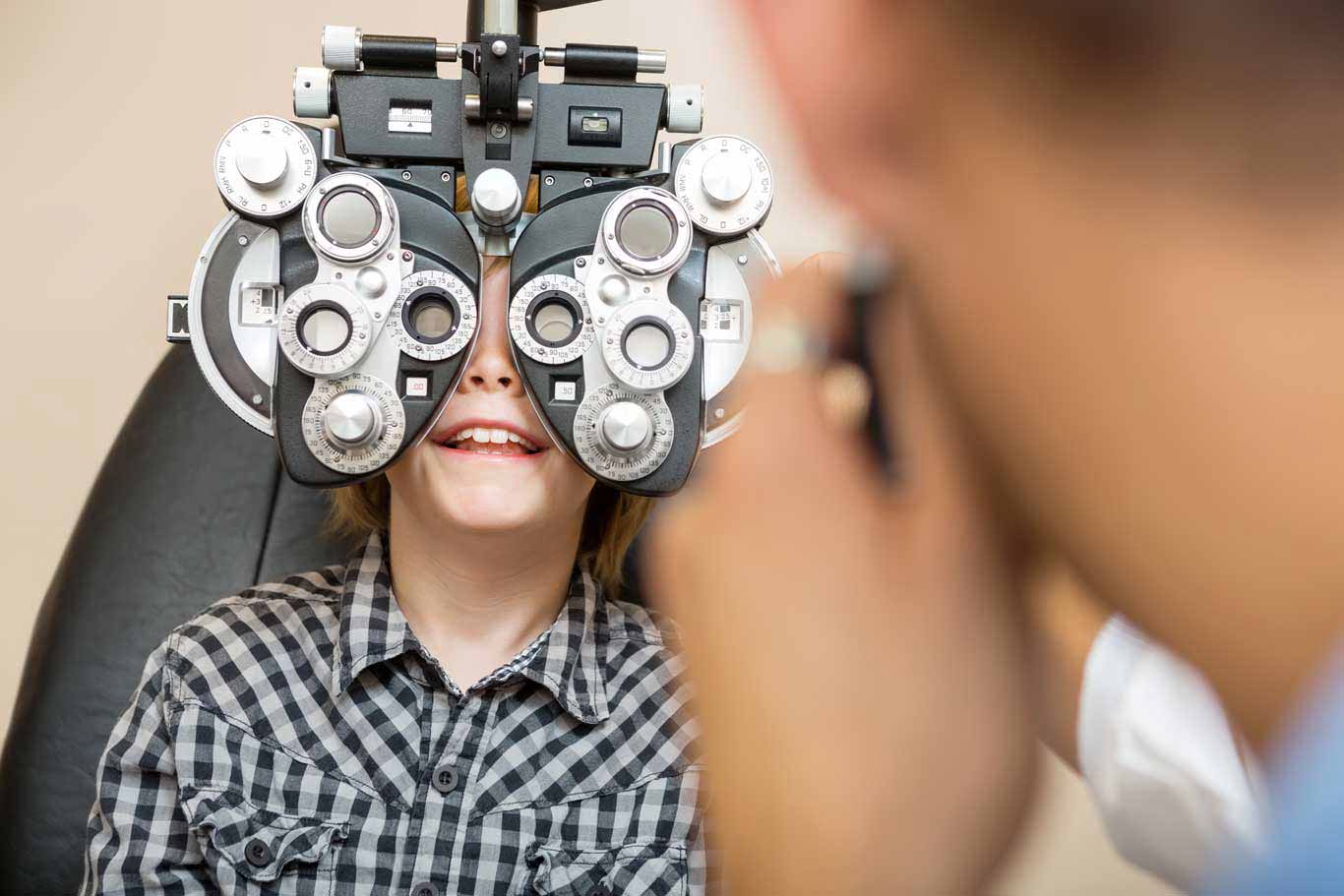Ideal Eye Doctors Panama City: Specialist Care and Modern Facilities
Ideal Eye Doctors Panama City: Specialist Care and Modern Facilities
Blog Article
A Comprehensive Guide to Eye Surgical Treatment Treatments Available at Your Optometrist's Method
In the world of ophthalmology, the improvements in eye surgical procedure treatments have opened a world of opportunities for those seeking enhanced vision and eye wellness. From the well-known LASIK eye surgery to the less acquainted Corneal Transplants, the range of treatments available at your ophthalmologist's practice can attend to a variety of vision-related problems. Understanding the subtleties of each treatment option and how they can possibly change your vision needs a closer consider the results and complexities connected with these treatments. Let's discover the varied landscape of eye surgery treatments that might possibly improve your aesthetic skill and top quality of life.
LASIK Eye Surgery
When thinking about vision improvement treatments, LASIK eye surgical procedure arises as a famous selection for people looking for long-lasting improvement in their eyesight. LASIK, which stands for Laser-Assisted sitting Keratomileusis, is a preferred refractive surgical procedure that intends to deal with common vision problems such as nearsightedness, farsightedness, and astigmatism. This treatment entails making use of a laser to improve the cornea, enabling light to be appropriately focused onto the retina, resulting in clearer vision without the requirement for glasses or get in touch with lenses.
One of the key advantages of LASIK eye surgical procedure is its fast and fairly painless nature. The procedure itself usually takes only about 15 minutes per eye, with a lot of individuals experiencing enhanced vision virtually promptly. Additionally, the recuperation time for LASIK is fairly short, with many people able to return to their normal tasks within a day or 2.

PRK (Photorefractive Keratectomy)
FIRST SENTENCE:
One more sophisticated vision modification treatment comparable to LASIK is PRK (Photorefractive Keratectomy), using reliable remedies for individuals looking for choices to traditional glasses or get in touch with lenses. PRK is an operation that reshapes the cornea using an excimer laser to remedy refractive mistakes such as nearsightedness (nearsightedness), hyperopia (farsightedness), and astigmatism. Unlike LASIK, PRK does not entail developing a flap on the cornea; instead, the outer layer of the cornea is carefully gotten rid of before the laser therapy. This makes PRK an appropriate alternative for people with slim corneas or those entailed in tasks where the threat of eye trauma is higher.
The healing period for PRK is much longer compared to LASIK, as the external layer of the cornea needs time to restore. Individuals may experience pain and fuzzy vision during the first healing stage, but vision gradually enhances over several weeks. Your ophthalmologist will supply detailed post-operative care guidelines to guarantee a smooth recuperation process and ideal aesthetic outcomes.
Cataract Surgery
Cataract surgical treatment, an usual treatment performed by ophthalmologists, includes getting rid of the over cast lens within the eye and changing it with a clear artificial lens implant to restore vision clearness. Cataracts happen when the all-natural lens of the eye comes to be over cast, leading to blurred vision and difficulty seeing clearly. During cataract surgical treatment, the ophthalmologist makes a little cut in the eye and makes use of ultrasound technology to separate the cloudy lens, which is then carefully suctioned out. When the cataract is eliminated, the man-made lens, understood as an intraocular lens (IOL), is put to change the all-natural lens's feature. This IOL aids to concentrate light onto the retina, boosting vision. Cataract surgical procedure is commonly performed on an outpatient basis and is understood for its high success rate in improving vision and lifestyle for clients. It is vital to seek advice from your optometrist to establish if cataract surgery is the right option for you based on your private eye health and wellness requirements.
Corneal Transplants
Corneal transplants, also recognized as corneal grafts, are surgeries that involve changing damaged or unhealthy corneal cells with healthy benefactor tissue to enhance vision and minimize corneal problems. This treatment is normally recommended for people with corneal scarring, thinning, or other corneal conditions that can not be treated successfully with various other methods such as medicine or call lenses.
During a corneal transplant, the eye doctor gets rid of the central part of the harmed cornea and changes it with a contributor cornea. This benefactor cells is very carefully picked, tested, and kept to make certain compatibility and reduce the danger of denial. Corneal transplants can recover vision, his response decrease pain or pain, and boost the appearance of the eye.
There are different sorts of corneal transplants, consisting of full-thickness transplants (passing through keratoplasty) and partial-thickness transplants (such as endothelial keratoplasty or anterior lamellar keratoplasty), with the option relying on the particular problem being dealt with. After the surgery, patients need close post-operative treatment to check recovery and protect against complications.
Retinal Detachment Surgery
Following successful corneal transplants, one more vital eye surgical treatment treatment that might be needed for particular people is retinal detachment surgical procedure, a fragile procedure targeted at recovering the retina's correct placement to preserve vision and prevent further issues (eye care panama city fl). Retinal detachment happens when the retina, the thin layer of tissue at the back of the eye in charge of catching light and sending visual signals to the brain, pulls away from its typical setting. This splitting up can bring about vision loss if not immediately resolved via surgical procedure
Throughout retinal detachment surgical treatment, the eye doctor works to reattach the retina to the back of the eye. The goal of the surgical procedure is to avoid vision loss and boost or restore vision if possible.
Verdict

In the world of ophthalmology, the developments in eye surgery therapies have opened up a globe of possibilities for those seeking boosted vision and eye health and wellness. From the widely recognized LASIK eye surgery to the less acquainted Corneal Transplants, the range of treatments available at your eye physician's practice can attend to a variety of vision-related problems. It is important to check over here seek advice from with your eye doctor to identify if cataract surgical procedure is the right choice for you based on your specific eye health demands.
Following effective corneal transplants, an additional vital eye surgical treatment treatment that may be required for particular individuals is retinal detachment surgery, a fragile operation intended at restoring the retina's appropriate position to protect vision and protect against further problems.In final thought, there are numerous eye surgical procedure therapies available at your eye doctor's method, consisting of LASIK, PRK, cataract surgical procedure, corneal transplants, and retinal detachment surgical procedure.
Report this page